What is Tinnitus?
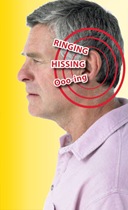 Tinnitus is a frustrating, chronic disorder that can – at times – make a person feel like they’re going mad. It can be related to a diagnosed medical condition or be completely idiopathic; and when the cause is unknown finding solutions is an exhausting process.
Tinnitus is a frustrating, chronic disorder that can – at times – make a person feel like they’re going mad. It can be related to a diagnosed medical condition or be completely idiopathic; and when the cause is unknown finding solutions is an exhausting process.
Nutrition and Tinnitus
Nutrition and dietary deficiencies can play a very real role in heath and the progression of disease. The herbal and vitamin market abounds with claims, both supported and anecdotal, for the benefits of supplementation. Vitamin B-12 has been getting a lot of press lately regarding tinnitus and it’s hard to make sense of all the new information.
What is a vitamin anyway?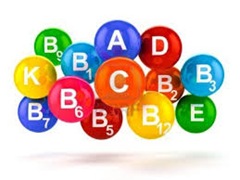
It’s actually hard to define a “vitamin” as they’re classified by what they do in the body vs. their composition. They function as enzymatic co-factors; meaning they’re needed by an enzyme to do its job. Enzymes and their co-factors are not destroyed when they do their work, nor are they added to the final product, so they can be reused until they break down. Many vitamins incorporate a metal atom (cobalt in the case of B-12, A.K.A “cobalamin”). Some are water soluble while others are fat soluble. Some can be manufactured in the body, while others come only from food.
What is vitamin deficiency?
Vitamin deficiency is when the levels of available vitamin, as measured in the blood, are below a standard set by the medical and biochemistry community. Generally, these standards are based on the levels below which people begin to get sick. The recommended blood concentration of B-12 is between 200-900 pg/ml (picograms/milliliter). Being below this level for long-term can lead to symptoms including megaloblastic anemia and neurological symptoms like numbness in the hands and feet, gait disturbances (problems walking) and even changes to taste and vision.
One point of debate is whether the current markers for high and low are really sufficient for preventing disease. The aforementioned problems certainly arise when levels of B-12 are significantly low, for a long time. But some argue that more mild insufficiencies may contribute subtly to degenerative illnesses. Definitive answers on this are yet to come.
Why am I low in B-12?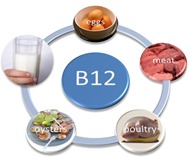
Vitamin deficiencies can arise from diet, metabolic problems or a failure to absorb a nutrient properly. B-12 can’t be manufactured by either plants or animals, and is actually formed by bacteria. It is stored in the foods we eat, and its absorption is a complex process.
The majority of dietary Cobalamin is found in meat, egg and fish products – and a diet low in these can make it difficult to keep B-12 levels normal. Vegans must pay special attention to ensure their diets have a full complement of nutrients including B-12. Cobalamin must be bound to protein during digestion, absorption and transportation through the blood. In the stomach, dietary B-12 is broken away from its ingested protein and re-bound to “R-binders” (A.K.A haptocorrins, A.K.A transcobalamin I).
These proteins carry it through to the small intestine where the haptocorrins are degraded and the B-12 binds to “intrinsic factor”. Pancreatic insufficiency or a high (basic) intestinal pH can lead to problems with this step. In the Ilium, intrinsic factor receptors bind the protein/B-12 complex and bring it into the enterocyte (intestinal absorptive cell) where B-12 then binds to transcobalamin II for transport through the blood. A transcobalamin II receptor is used by peripheral cells to take it from the bloodstream, with about 50% of B-12 ending up in the liver for storage.
A failure of any of these proteins or receptor complexes can result in a failure to absorb or transport B-12. It’s common for the production of intrinsic factor to diminish with age, which is why we hear so much about B-12 shots for the elderly.
Does B-12 Deficiency affect my tinnitus?
Whether a B-12 deficiency affects tinnitus is a question currently being studied. It is known that deficiencies in B-12 can cause neurological symptoms due to hypomethylation within the nervous system (resulting from an inability to recycle homocysteine to methionine and ultimately to S-adenosylmethionine). Neurological symptoms usually arise only after long-term, significant B-12 deficiency.
To date, there has been one formalized study showing that individuals already deficient in B-12 are more likely to suffer noise induced hearing loss with tinnitus after exposure to loud noise. While one study does not a scientific truth make, this is a good place to start the investigation. It should also be noted that the study did not address whether supplementing with B-12 is protective or restorative, or if deficient B-12 simply left the hearing more vulnerable. These are things that need to be researched.
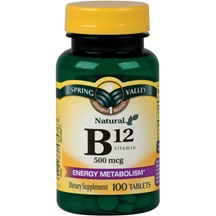 What can I do about low B-12?
What can I do about low B-12?
What to do about a B-12 deficiency depends on its cause. If your diet lacks cobalamin, improve the amount of B-12 rich foods you eat. If for some reason that’s not an option, vitamin pills are an effective alternative.
If the deficiency is an absorptive problem (which can be confirmed by your doctor), B-12 shots are a well recognized therapy. If the failure is with B-12 usage from the blood stream, there are lifestyle changes that can maximize the value of the vitamin that is being absorbed such as maintaining adequate cysteine in the diet.
It’s important to note that the liver stores enough B-12 to supply all the body’s need for 2 to 3 years. This is why symptoms of B-12 deficiency are slow to develop, and a single low blood test is not necessarily time to panic. While the journals report no evidence that taking excessive B-12 is hazardous, a person is concerned about B-12 should work with their doctor and a nutritional specialist to determine the concern, cause and the need to take action.
If you suffer from tinnitus, call our office today to schedule a consultation with the best tinnitus treatment center in NYC.
 Do you feel your family and friends don’t understand?
Do you feel your family and friends don’t understand?
 Tinnitus is a frustrating, chronic disorder that can – at times – make a person feel like they’re going mad. It can be related to a diagnosed medical condition or be completely idiopathic; and when the cause is unknown finding solutions is an exhausting process.
Tinnitus is a frustrating, chronic disorder that can – at times – make a person feel like they’re going mad. It can be related to a diagnosed medical condition or be completely idiopathic; and when the cause is unknown finding solutions is an exhausting process.

 What can I do about low B-12?
What can I do about low B-12?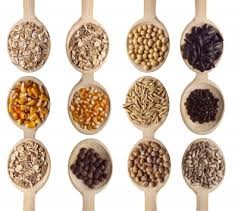 You hear what you eat – tinnitus and diet
You hear what you eat – tinnitus and diet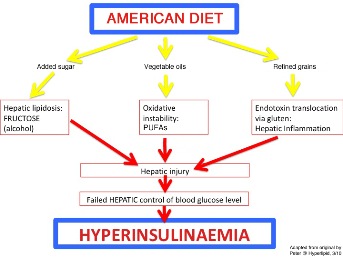
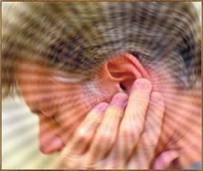 Does diet affect tinnitus
Does diet affect tinnitus